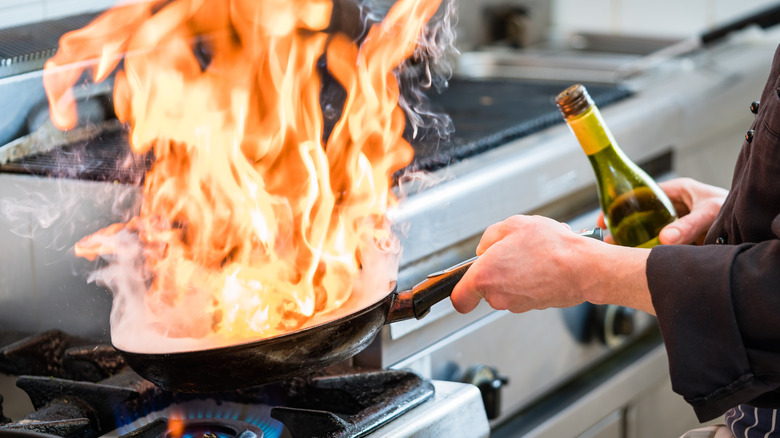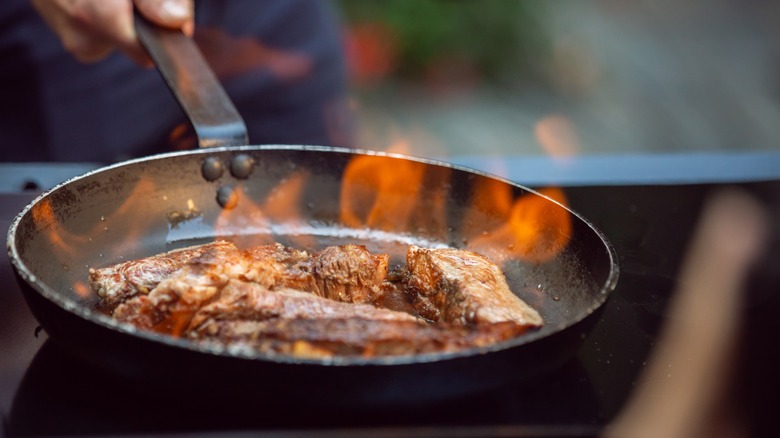The Best Liquor To Use When Flambeing Food
Setting food on fire — when it's intentional, of course — is a wonderfully theatrical way to prepare a meal, especially when entertaining. Flambeing comes from the French term meaning "flame" or "flaming," and refers to the technique of dousing food in alcohol before setting it alight. But which liquor produces the best results? Food Republic consulted Cédric Vongerichten, executive chef and owner of Wayan in New York, to get some expert advice.
"The best liquor for flambeing is typically one with a high alcohol content (around 40% ABV) like brandy, rum, or whiskey," suggested Vongerichten. "These liquors ignite easily but burn off quickly, leaving behind the essence of the alcohol without overwhelming the dish." Instead of the harsh taste of booze, the food takes on a more subtle flavor from the liquor in question.
Choose a liquor that complements the overall flavors of the dish. For fruity desserts such as bananas foster, sweet dark rum pairs beautifully, or try cooked apples or pears flambeed with brandy, which works just as well for savory dishes like chicken suprême or steak Diane. You could also use whiskey to flambe chicken or steak, or flame shrimp with bourbon. Alternatively, try Cognac or Armagnac with savory or sweet foods such as seafood or babas, or use a fragrant orange liqueur like Grand Marnier or Cointreau for French crêpes Suzette.
How to flambe with liquor like a pro
While some spirits work brilliantly, there are definitely types of alcohol that are not suitable for flambeing, according to expert Cédric Vongerichten. "Avoid liquors with lower alcohol content, like beer or wine, as they won't ignite well," said the chef, who is appearing at City Harvest's BID 2024: CHTV! event on October 29, 2024, which aims to raise money to help feed New Yorkers in need. The same principle applies to sparkling wines such as Champagne or cava, as their alcohol content is also too low.
At the opposite end of the spectrum, you should also steer clear of "extremely high-proof spirits like Everclear," Vongerichten advised, since "they can be too volatile." Stick to liquors that are 80-proof (or 40% alcohol by volume), and avoid anything over 120-proof, as it's extremely flammable.
The temperature of the liquor is also key when flambeing. You need it warm so it will ignite, but not too hot — boiling it will burn off the alcohol, making it impossible to set aflame. Aim for a temperature of about 130 degrees Fahrenheit. Only use a small amount until you're comfortable with the technique; around a tablespoon of your chosen liquor for each serving is ample. Use a long lighter or fireplace match to set the booze alight, keeping your fingers at a safe distance — and perhaps keep a lid handy in case you need to extinguish the flame.


